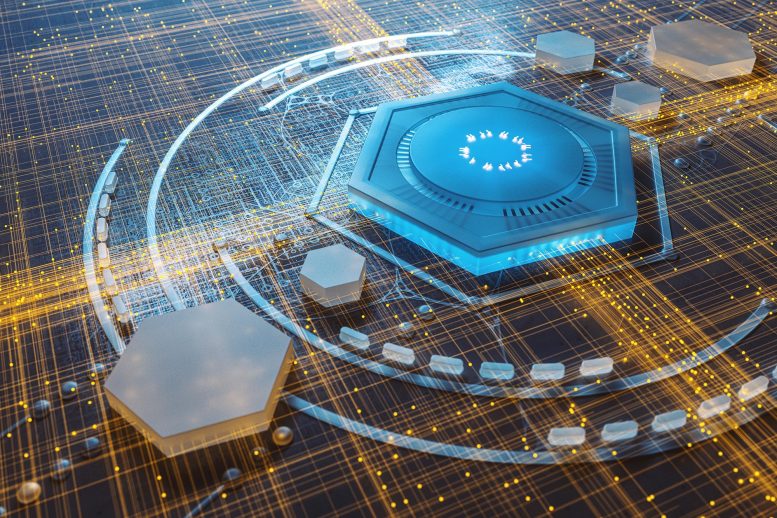quantum computing
Quantum Computing in 2025: Expert Analysis & Market Intelligence
Quantum computing is transforming enterprise technology, with the global market projected to reach $1.8B in 2025. Discover technical advances, deployment realities, and actionable insights.
Market Overview
The quantum computing sector is experiencing rapid expansion, with the global market valued at $1.8 billion in 2025 and projected to reach $5.3 billion by 2029, reflecting a robust CAGR of 32.7%[2]. Quantum computing dominates the broader quantum technology market, accounting for over 60% of total value[1]. North America leads in adoption, but Asia-Pacific—especially China and Japan—is accelerating investment and research, supported by both government and private sector funding[1][2]. The United Nations' designation of 2025 as the International Year of Quantum Science and Technology underscores the sector's growing global significance[4].
Key application areas include financial modeling, logistics optimization, materials science, and quantum machine learning. The financial industry is expected to be among the earliest commercial adopters, leveraging quantum's potential for complex risk analysis and portfolio optimization[3].
Technical Analysis
Quantum computing hardware is advancing rapidly, with superconducting qubits leading in maturity and commercial deployment[2]. Major players such as IBM, Google, and Rigetti are pushing the boundaries, with IBM investing $100 million in 10,000-qubit systems[2]. Trapped ion and photonic approaches are also gaining traction, offering alternative pathways to scalability and error correction[1].
2025 marks a shift from simply increasing qubit counts to stabilizing and error-correcting logical qubits, a critical step toward practical, fault-tolerant quantum computing[4]. Noisy Intermediate-Scale Quantum (NISQ) devices remain the norm, but more experiments with logical qubits and improved physical qubit designs are underway[3]. Cloud-based quantum computing is the fastest-growing deployment model, enabling enterprises to access quantum resources without on-premises investment[2].
Benchmarks focus on quantum volume, gate fidelity, and error rates. While universal quantum computers remain a long-term goal, specialized hardware and software for targeted applications—such as quantum annealing for optimization—are delivering near-term value[3].
Competitive Landscape
The quantum computing ecosystem is highly competitive and fragmented. IBM, Google, and D-Wave lead in hardware, while startups like IonQ and PsiQuantum are innovating in trapped ion and photonic qubits[1][2]. Cloud hyperscalers (AWS, Microsoft Azure) offer quantum-as-a-service platforms, democratizing access and accelerating enterprise experimentation[2].
Compared to classical high-performance computing (HPC), quantum systems offer exponential speedups for specific problems but remain limited by qubit stability and error correction. Hybrid quantum-classical workflows are emerging as a pragmatic approach, leveraging quantum accelerators for select workloads while relying on classical infrastructure for the rest[3].
Implementation Insights
Real-world deployment of quantum computing requires careful consideration of hardware maturity, software stack compatibility, and workforce readiness. Most enterprises begin with cloud-based pilots, leveraging quantum development kits (Qiskit, Cirq) and simulators to build internal expertise[2][3]. Integration with existing IT infrastructure and security protocols is essential, especially as quantum communication and cryptography mature[1][4].
Key challenges include limited availability of quantum talent, evolving standards, and the need for robust error correction. Early adopters in finance and logistics report practical challenges in mapping classical problems to quantum algorithms and managing hybrid workflows. Best practices include cross-functional teams, ongoing training, and close collaboration with technology vendors and academic partners[3].
Expert Recommendations
Enterprises should adopt a phased approach: start with quantum-readiness assessments, invest in workforce development, and run proof-of-concept projects on cloud platforms. Monitor advances in logical qubits and error correction, as these will determine the timeline for broader adoption[3][4]. Engage with industry consortia and standards bodies to stay ahead of interoperability and security developments.
Looking ahead, quantum computing is poised to transform industries reliant on complex computation and secure communication. However, organizations must balance optimism with realism—current systems excel at specific tasks but are not yet general-purpose replacements for classical computing. Strategic investment, continuous learning, and ecosystem engagement are key to capturing quantum's long-term value.
Recent Articles
Sort Options:

Quantum Computers Are Here and They’re Real. You Just Haven’t Noticed Yet
IBM Quantum's director discusses the current landscape of quantum computing, highlighting advancements and challenges in the field. The insights provided shed light on the future potential and practical applications of this groundbreaking technology.

The Quantum Race: Exploring Alternative Qubit Modalities
The article explores the significance of quantum mechanics and the evolution of quantum computing, highlighting various qubit types, including superconducting, trapped-ion, and photonic qubits. It emphasizes their potential applications and the challenges faced in achieving scalable, fault-tolerant quantum systems.

Scientists Use Cryptography To Unlock Secrets of Quantum Advantage
Researchers are leveraging cryptography to explore the mechanisms driving quantum speed-ups, highlighting quantum computing's potential as the next major advancement in technology. This innovative approach contrasts traditional binary computing by utilizing principles from quantum physics.

Scientists Just Simulated the “Impossible” in Quantum Computing
Quantum computers offer immense potential, yet error correction remains a significant hurdle. Researchers emphasize the need to simulate quantum processes on classical computers to ensure reliability, highlighting the complexity of this critical task in advancing quantum technology.